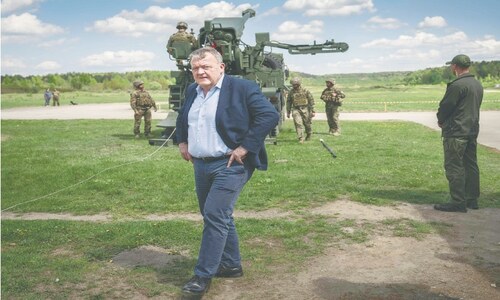TRIPOLI: More than a million Libyans have registered to vote in landmark elections due to be held next month in a show of enthusiasm for democracy after decades of dictatorship under Muammar Qadhafi.
Hundreds of candidates have thrown their hats into the ring for the vote for an assembly to draw up a first post-Qadhafi constitution for the oil-rich North African nation.
Registration got off to a slow and tentative start in the face of the persistent insecurity still gripping parts of the country more than six months after the interim government proclaimed liberation.
But the pace has accelerated sharply as deadlines loom on Monday for voters and Tuesday for candidates.
As of Thursday, Libya’s high electoral commission said 1,167,999 people had signed up to cast a ballot.
Out of a population of six million, there are an estimated 3.4 million eligible voters, according to a rough estimate based on a 2006 census.
“Finally, we have freedom and a chance to choose the most competent people to lead us,” said Suad Mohammed, 37, as she added her name to the electoral register.
She considered it a duty to “the revolutionaries who sacrificed their lives to make such a day possible.” Libya is to elect a constituent assembly in June in line with a declaration by the ruling National Transitional Council (NTC) after Qadhafi’s ouster, although an exact date yet to be fixed.
For most, voting will be a new experience.
Only a few, like Omar Bashir Afiya, are old enough to remember taking part in parliamentary elections under the Western-backed monarchy which Qadhafi overthrew in a bloodless coup in 1969.
“History will judge who leads us next but let’s hope for the best,” said Afiya, leaning on his son as he registered.
Would-be voters need to show their identity cards and family booklets at the makeshift registration centres set up in schools around the country. Most have huge smiles on their faces as they leave armed with the tiny orange and white card that documents their right to vote.
“I am simply overjoyed,” Mariam Abdullah told AFP outside one centre in Tripoli. “I now feel like a real citizen, with rights, an opinion, a voice and a vote.” Arafat Dukali, a 38-year-old mechanical engineer, said that family and tribal networks were key in spreading awareness about what is expected of citizens in the next political chapter.—AFP
















































Dear visitor, the comments section is undergoing an overhaul and will return soon.